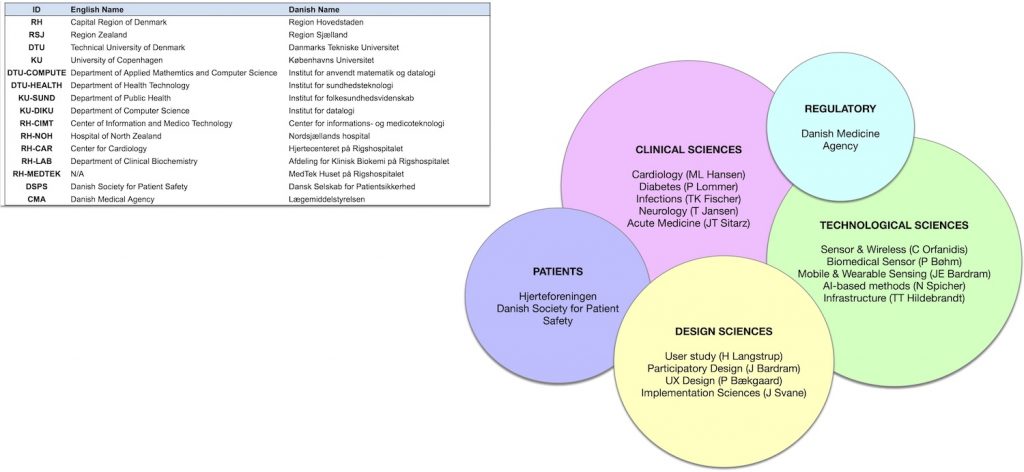
The Danish healthcare system is undergoing a major shift: more and more treatments are moving from the hospital into the home. This transition is driven by rising healthcare costs, workforce shortages, and an increasing number of people living with chronic conditions. To support this development, a new Clinical Academic Group (CAG) has been established under the Greater Copenhagen Health Science Partners (GCHSP): CAG DIGITAL – Digital Phenotyping for Home-Based Treatment and Care.
What is the vision?
The vision of CAG DIGITAL is to create a testbed for digital health technologies that can make home-based treatment safe, effective, and user-friendly. This testbed will bring together clinicians, researchers, patients, and industry to design, develop, and validate new solutions – from wearable sensors and mobile health apps to AI-based tools for analyzing patient data and predicting health outcomes.
Ultimately, the goal is to ensure that patients experience seamless and safe care at home, clinicians can easily integrate new tools into their workflows, and researchers have a strong foundation for developing and testing innovative digital health solutions.
Why digital phenotyping?
At the heart of this project lies the scientific approach of digital phenotyping – the continuous, moment-by-moment quantification of human behavior and physiology using data from smartphones, wearables, and other digital devices. By combining patient-reported outcomes with passively collected data such as mobility, sleep, communication, and vital signs, digital phenotyping can reveal digital biomarkers that provide early warning signs, track disease progression, and support timely interventions.
This approach allows healthcare to move beyond episodic hospital visits and towards continuous, data-driven care in the patient’s own home.
How is CARP involved?
The Copenhagen Research Platform (CARP) plays a central role in CAG DIGITAL. CARP already provides a full-stack infrastructure for mobile and wearable sensing, data management, and digital phenotyping research. It supports a wide range of data collection modalities – from wearable sensors to patient-reported outcomes – and is hosted securely at DTU Computerome.
In CAG DIGITAL, CARP will serve as a foundation for developing and testing digital biomarkers and for ensuring interoperability and data quality in home-based care. The platform will also be integrated into the planned testbed, making it possible to evaluate new devices, apps, and infrastructures under realistic conditions.
What will the project do?
As shown in Figure 1, CAG DIGITAL brings together a large multidisciplinary team across DTU, KU, Region Hovedstaden, Region Sjælland, patient organizations, and regulatory bodies.

The work will be organized in six research areas:
- Understanding home-based care – studying the lived experiences of patients and clinicians.
- Sensor and wireless design – creating new wearable technologies that are easy and safe to use.
- Quality assurance – developing standards for evaluating the reliability and clinical value of home-monitoring tools.
- Health data science – using AI and data analytics to design trustworthy digital biomarkers.
- Infrastructure – ensuring interoperability with health data standards and clinical systems.
- Testbed – establishing a dedicated facility for testing digital home-care solutions in practice.
Through this effort, CAG DIGITAL will not only generate new knowledge but also train students, clinicians, and researchers in the use of digital health technologies.
Towards the future of healthcare
By combining digital phenotyping with clinical expertise, patient involvement, and a strong technical foundation in CARP, CAG DIGITAL aims to make Denmark a hub for innovation in home-based digital health. The project will support better patient outcomes, more efficient healthcare, and new opportunities for research and industry.